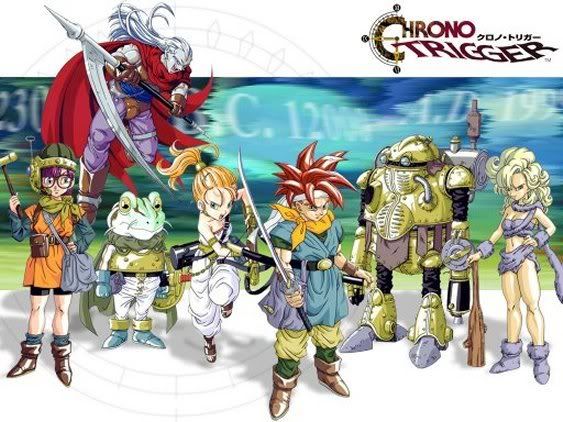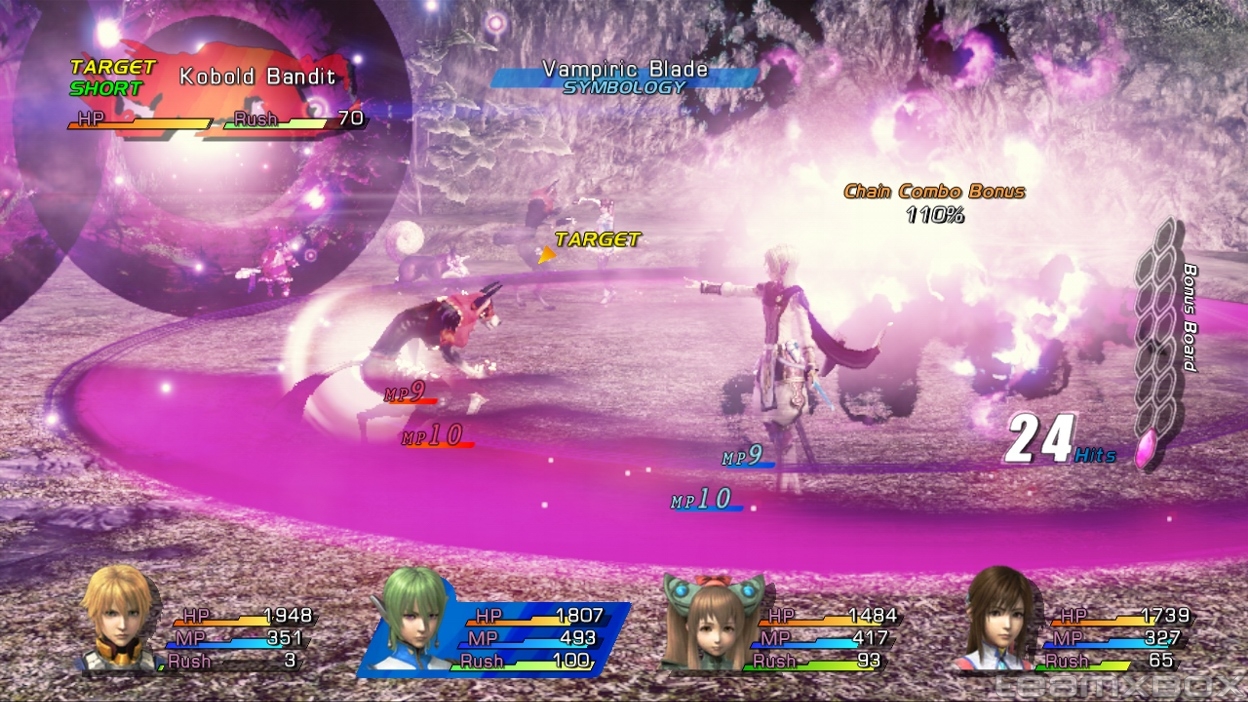
Editor's note: Eugene's got an interesting premise behind his criticisms of the Japanese role-playing game. Instead of bemoaning storytelling, he notes that the gameplay systems have grown so complex that they turn off players. Do you find this to be a problem with current JRPGs? Let us know in the comments! -Jason
Since the Japanese role-playing game has returned to the spotlight again, it's a good time for yet another JRPG-inspired article. Let's talk about the classics — or more specifically, what elevates a JRPG into "classic" territory. Common answers include endearing characters, epic storylines, and outstanding visual/aural presentation. These are valid points, definitely, but it's arguable that most modern titles are able to better (or at least equal) their classic counterparts on the technical level.
Final Fantasy 6's tale of Rebellion versus Empire was exciting almost two decades ago, easily equaled now by any random universe-ending calamity in scope or narrative. Cecil of Final Fantasy 4 is a likeable cut-and-dry paragon of justice, but even Chun-Li has more backstory than he does.
Likewise, while we always fondly remember the sprite graphics and chiptune synthesizers of the classics, you can't compare them to the visual and aural flair of modern software. While it's true that Nobuo Uematsu and Yasunori Mitsuda created some of the most iconic and popular tunes defining the 16-bit era RPGs, claiming that musical talent has only gone down since is close-minded and immature. Popular opinion is seldom the best choice, and any creative artist worth his or her salt knows that stagnation is the cardinal sin of the creative mind.
To put it simply, the JRPGs of today have demonstrated more than enough potential to convincingly usurp the JRPG throne from the classics. Yet this isn't happening, at least from my point of view. So what sets the classics apart? What differentiates the classics from their flashy successors lies in the ease of picking up and understanding the gameplay mechanics of each game, coupled with critical volume of gamers willing to give it an initial shot. It's all about complexity.
Anyone that had experience with games could pick up any JRPG from the pre-Final Fantasy 7 era and understand the gameplay system within 5 minutes. The menu/ring-driven system is straightforward, differing only in presentation and style between games. The real meat that differentiates each is the strategies invoked and how to go about executing them effectively. Committing a triple-tech in Chrono Trigger or a summon in FF4 have different implications to strategy, but executing them involves nothing more than choosing the skills directly from their menus. Easy to learn, hard to master. The minimal learning curve allows gamers to repeatedly step into the roles of the protagonists long after first completion to enjoy the game without it turning into a cakewalk.

The hardest thing to understand here is Kefka's fashion choice
Now consider the recent Final Fantasy 13. No matter how much prior experience one had with JRPGs, few could pick up FF13 for the first time and immediately understand how the system works without going through the first couple of hours. I freely admit that even after attaining 100 percent completion, I still don't fully know how to exploit the paradigm system.
The same can be said for most modern games. Star Ocean 4 even encourages the player to go through its lengthy tutorial system out of sheer necessity. Only through multiple reiterations does one fully grasp the system to use it effectively to one's advantage.
For games like Resonance of Fate, the less said the better. Only those dedicated enough to spend significant time to learn the system will experience the full game. As a result, not only is it harder to get started with these games initially, but the impetus for repeated playthroughs months or years down the road is lessened owing to the steep learning curve — even if the game itself is excellent.
Unfortunately, JRPGs of today have inherently created significant barriers to entry even for existing fans. No doubt, some gamers revel in cracking open the intricate gameplay to attain mastery over the game, which is fine, but I've always felt the draw of JRPGs came from formulating effective/complex strategies with a leveled-up (or down) party to defeat a tricky foe and the reward of plot progression using nothing more than a simple-to-use interface like a menu system. Am I the minority here?
I don't want to jump through hoops in order to be eligible to potentially successfully execute the same strategies. Final Fantasy 8 began this annoying trend with the "Press R1 at the correct time for additional damage," and this has since evolved to the point that the 'standard' JRPG now plays something like Devil May Cry but with broken controls.
What about upgrading your inventory? It's no longer enough to reach the village after braving through a tough area and reap the rewards by purchasing the GodSlayer from the very expensive shop. Instead, I get to buy a recipe for the GodSlayer. And the raw materials are scattered all across the world. And I need a Level 50 Synthesis ability. Oh, joy!

Anyone care to even begin to describe what's happening here?
Of course, you can attribute the current evolution of JRPGs to the demand from fans for continual innovation. No longer are we content to use the ancient menu-driven system or fight through random encounters with invisible enemies. The sudden influx of FF7 fans weaned on twitch reflex games like Wolfenstein and Madden meant JRPGs had to evolve to include more elements of interactivity during battles (button mashing, hadoken motions) or risk losing this lucrative segment of self-proclaimed RPG nuts.
It's deeply saddening that FF9, the only post-FF7 in the series game to utilize the simple-to-pick-up gameplay of the past, is generally treated like some bastard child and looked upon with disdain by the general FF7-loving fandom. The main reason? The gameplay was too simple. Ironically, fan-favorites FF6 and Chrono Trigger play similarly FF9.
Modern-day JRPGs have evolved to become more complex and engaging, but in slightly altered ways. Instead of challenging the player to overcome obstacles using basic rules, gameplay has morphed to force the player to utilize complex mechanisms to achieve straightforward tasks. The player doesn't have to think more; they just have to do more. I acknowledge that things cannot remain stagnant in order for the genre to progress, and it should come from quality, not quantity.
Good writing, artistic direction, musical score and of course, a solid gameplay system are steps in the right direction. Hard-to-pick-up gameplay, mundane fetch-quests, and artificial game-length padding is not. Developers need to remember that the most important criteria for any game is its fun factor and that added layers of needless complexity usually only serve to frustrate players.
After all, innovation is often understood as a different but simpler way to execute a traditional task.
VentureBeat's mission is to be a digital town square for technical decision-makers to gain knowledge about transformative enterprise technology and transact. Learn More
